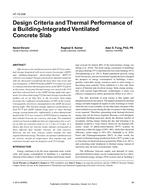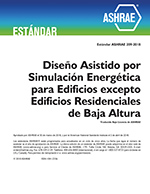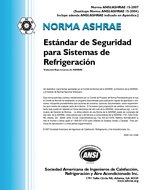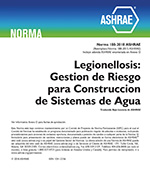Description
Effectiveness of a ventilated concrete slab (VCS) as a thermalstorage integrated with an air-source heat pump (ASHP)and building-integrated photovoltaic/thermal (BIPV/T)collectorwasstudied. Design criteria of air channels inside theslab are discussed considering the mass flow rate of air andsize of channels.ATRNSYS model of BIPV/T systems was usedto estimate potential thermal generation of the BIPV/T panelsin the winter. Generated thermal energy was stored in the VCSand then released back to the ASHP during night-time operation.It is shown that usingVCSthermal storage to preheat theoutdoor air as an inlet flow to the air-source heat pumpincreases the coefficient of performance (COP) of the system.Consequently, electricity consumption by the ASHP decreasesduring night. This thermal storage improves performance ofboth PV/T and ASHP without using water or other thermalstorage systems/materials. Additionally, a three-dimensionalmodel of theVCS was created in ANSYS Fluent to simulate theheat transfer between air, concrete, and room. The simulatedresults are based on different inlet air temperatures for a varietyof inlet air velocities from 0.1 to 5.3 m/s (17.4 fps). It isshown that lower air velocity inside channel corresponds tomore efficient heat transfer between air and concrete.However, the low inlet velocity cannot transfer the totalrequired thermal energy. Therefore, an optimal combination ofair velocity, outside air temperature, heat transfer rate, andtotal heat transfer must be found for each VCS design.
Citation: 2015 Annual Conference, Atlanta, GA, Transactions 2015, Vol 121 pt. 2
Product Details
- Published:
- 2015
- Number of Pages:
- 12
- Units of Measure:
- Dual
- File Size:
- 1 file , 3.7 MB
- Product Code(s):
- D-AT-15-008




